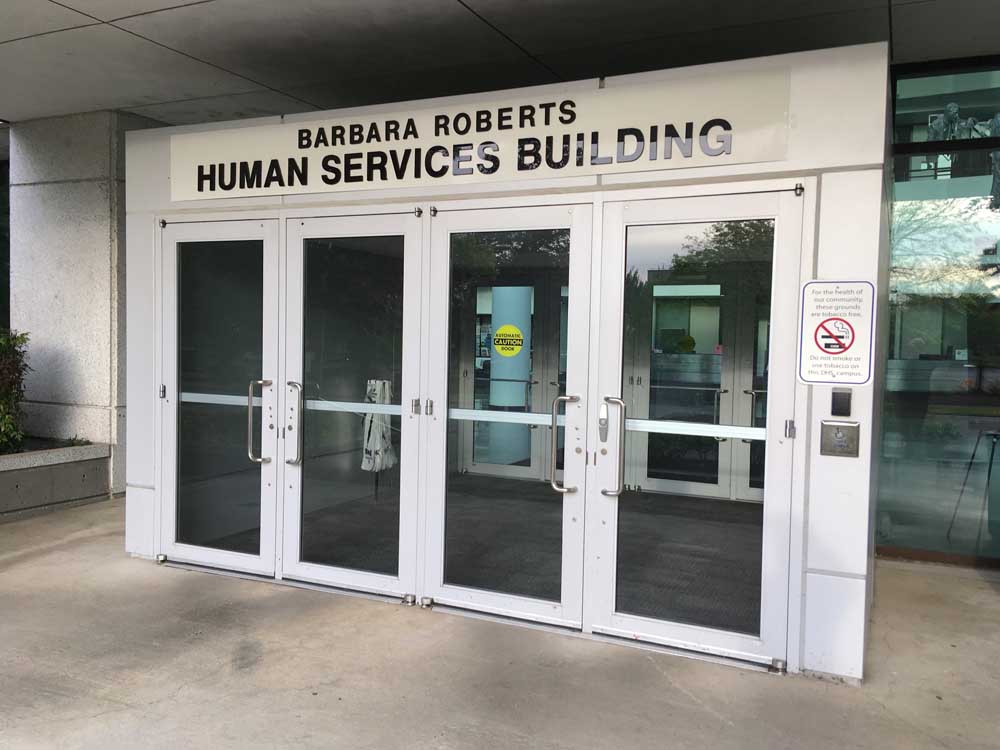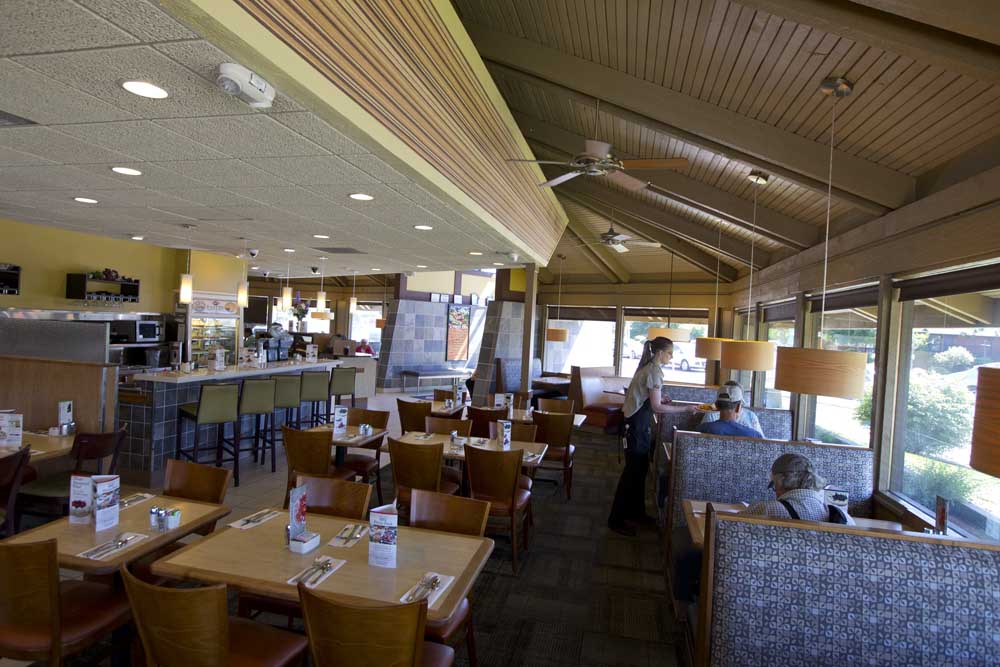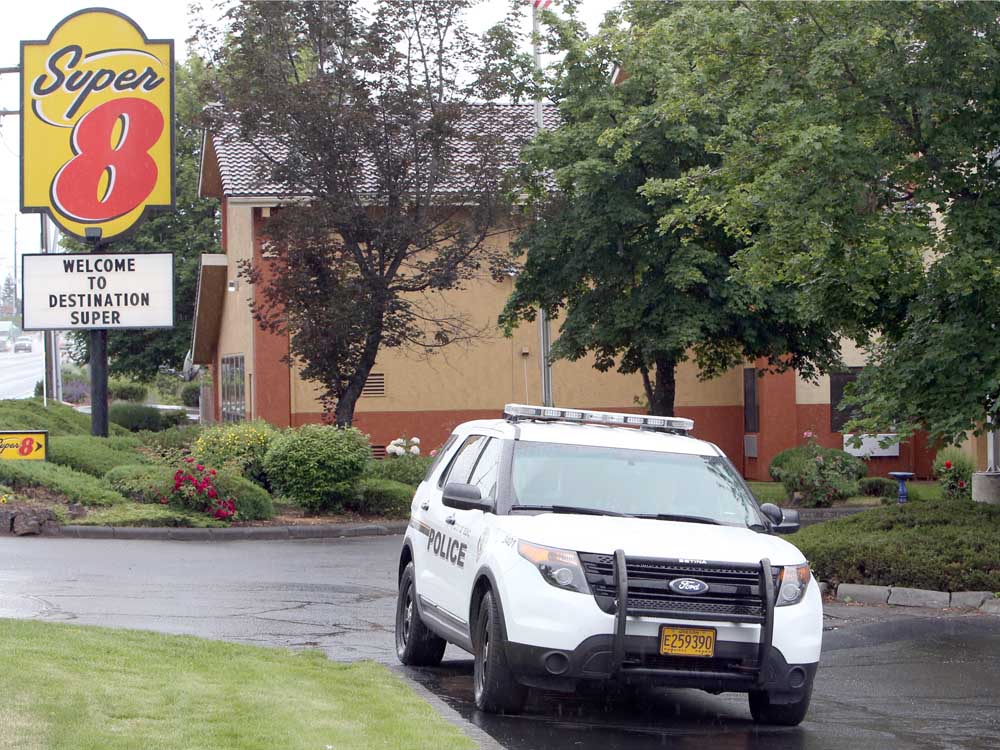How does foster care work in Central Oregon?
Published 5:30 am Saturday, December 9, 2023

- The Oregon Department of Human Services headquarters, seen here in 2019.
It can be daunting to consider becoming a caregiver for a child in foster care.
With so many organizations offering support, however, it really comes down to reaching out and asking how to get started.
The Oregon foster care system is organized through several organizations that work with the Oregon Department of Human Services, along with the department itself.
According to the agency’s October report on foster care, the number of youth in the system continues to decline. In September, there were 4,692 children in foster care and nearly 3,000 active foster care homes. And in that month, 187 children entered foster care. In December 2018, there were more than 7,000 children in care.
Though there are thousands of abuse reports a month, Child Protective Services first works to support the family and child in their home, with foster care as a step down the line if necessary.
Even after being placed in foster care, being reunited with family is the main goal, said organizers.
Foster care is meant to be temporary, and the average length of time in care is 18 months. Human services officials certify foster parents, also called resource parents, and respite parents, who provide temporary care for children.
Resource parents must be at least 21 years old, have a steady income, have space for the child, be able to physically care for a foster child and have sound judgment.
Children can also be placed with a relative in what is called kinship care. Also, if close friends know of a child who they want to care for, they can be certified by the agency for that child specifically.
The certification process includes an application, a home study, background and child abuse checks and training for prospective parents.
Supporting foster families
Every Child Central Oregon helps handle recruitment of foster parents and respite parents for the Oregon Department of Human Services and provides local needs and support for the more than 500 Central Oregon families it works with a year.
“Everything that we do is based on the hope and the persistence around recruiting more foster families and then retaining the ones we have and keeping them doing the really hard work they’re doing,” said Melissa Williams, the director of Every Child Central Oregon.
The organization has local initiatives based on Central Oregon needs, including collecting donations of items like car seats, diapers and more. Another initiative, The Neighborhood, connects local families with a foster family in their area to provide support through meals and acts of kindness. Williams said it has been well-received by the families she works with.
More Information
Every Child Central Oregon has a three-option toy drive this holiday season for children in foster care. The organization is accepting donations of toys via an Amazon wish list, new toys that can be dropped off at sites in Bend, Redmond, Sunriver, Sisters and Terrebonne, or a financial contribution that will pay for gifts.
Every Child Central Oregon also provides a night of respite care once a month via Foster Parent Night Out, where every child in a foster family can go to a four-hour event run by volunteers.
“Our impact is allowing for foster families to see and feel community. It can be a very lonely journey, and they can feel really isolated in that work, so by seeing neighbors and community members show up and bring them a meal…that brightens their spirit,” said Williams.
Therapeutic foster care
Adam Rodakowski is the foster care director at Greater Oregon Behavioral Health Inc. The nonprofit organization works across the state, including Central Oregon, and focuses on therapeutic foster care.
The Oregon Department of Human Services contracts with it so the organization can also certify families as foster parents. Parents can only be certified with one organization at a time, however.
The process to become fully certified takes anywhere from three to six months, he said. Applicants need to pass background and child abuse history checks. They also share information about their home, themselves, their childhood and their trauma history, among other topics. The organization conducts a home study as well.
The goal is to match a child with a foster family that’s a good fit.
“We wouldn’t want an introvert who just wants to chill and read books and maybe play video games and place them in a home that maybe is out on a ranch, and they’re outside all the time. That’s not a good match,” said Rodakowski. “We try to be really thoughtful about that.”
Organizers provide parents with 40 hours of training before becoming certified.
“That covers a variety of topics, everything about understanding how trauma impacts behavior, how to be an affirming foster home and supportive foster home, how to be culturally agile for individuals that may have a different culture than you, and of course rules and regulations and expectations about how to support a youth that is experiencing foster care,” Rodakowski said.
To continue to be a certified foster parent, the organization requires an additional 16 hours of training. Due to its focus on therapy, Greater Oregon Behavioral Health Inc.’s program provides specialized training for foster parents and youth, including in the home once a week.
Rodakowski is also the director of Foster Plus, a collaborative of nonprofits in Oregon that provides foster care services for kids in the state system.
The collaborative began around six years ago, after individual organizations realized they would be more helpful to families and youth if they began sharing ideas of what worked between them.
“We’re all here for one reason and that’s to support young folks and hopefully get them back with their family of origin,” he said. “It’s the idea sharing and program improvement piece that is really key, that helps us deliver better services.”
F
oster family support groups
Family Resource Center of Central Oregon facilitates foster family support groups using material developed by the Oregon Social Learning Center. Families meet for 16 weeks, and families discuss behaviors, teachable moments and other topics.
Kristen Rodriguez, program manager at Family Resource Center, said, “When it comes down to it, parenting, raising kids, being in a family unit can be hard. So there’s resources and there’s support systems in place to help alleviate some of that stress and help support those families. That’s what we’re here for.”






